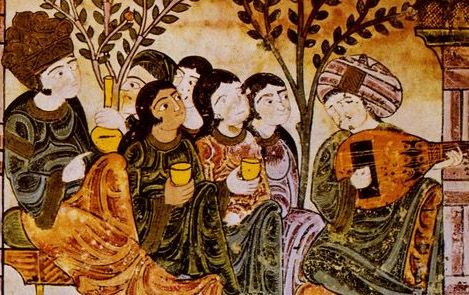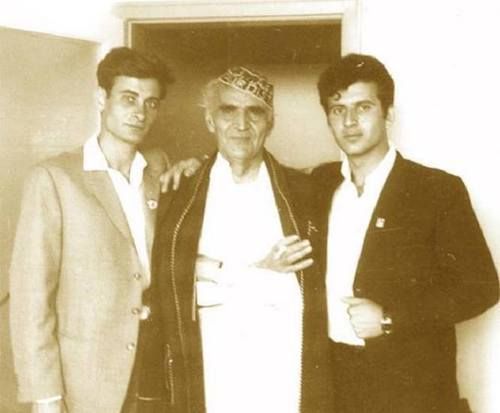Meet the Iraqi Poets
In this series we will introduce you to the story of different Iraqi writers and poets, their milestones, difficulties, views and time in exile. Do you want to share the story of an Iraqi poet? Contact us!
Iraq's culture of poetry
The traces that Iraq's deep-rooted culture of poetry left behind are still alive all over the world. For example, the ancient Mesopotamian Epic of Gilgamesh (2,100 BCE) set the ground for today’s storytelling. Mystic poetry of Rabi’a Al-Adawiyya (714 CE) and the poetry of Ziryab (857 CE) influenced today’s Spanish and Maghrebi Andalusian music traditions. More recently, 20th century poems of al-Jawahiri and Rusafi inspired activists around the world to utilize poetry to further their liberation goals.

Poetry is undoubtedly a distinct form of art in which the poet is able to appeal to a wider public by raising issues without having to address them in a direct manner. The role of poetry in Iraqi society especially changed based on the numerous difficulties Iraq faced. After enduring the injustices of the Ottoman Empire, Iraq fell to the hands of Western colonialists and was forced to live through oppression, invasion and distress. This consequently caused a shift in the literary space in which topics such as resistance, homeland and exile started to receive more serious attention. Poems produced in these times are therefore reflective of the pains and sufferings, battles, (in)stability, and freedom of Iraqis.
Popular folk poetry
The earlier mentioned poets Rusafi and al-Jawahiri, as well as other poets like Alsayyab and Al-Bayati and more, all attempted to transfer poetry that was born of a certain, particular culture and environment to the daily lives of the people. Therefore Iraqi poets used poetry as a way of expressing the problems and difficulties of the time. In the same way popular folk poetry such as the poems of Al-Kharki and many others, have a deep presence in Iraqi society until today. Mullah Aboud al-Karkhi (b. 1861) is famous for his popular and sarcastic poetry in which he criticized many of Iraq's politicians during the British occupation of Iraq and during the period of the Iraqi monarchy. His poetry is still popular and the work of such poets functions as an important source of heritage and a reliable record of historic events. Even during the recent fight against ISIS folk poetry brought many Iraqis together by stating their support for the Popular Mobilization Units through the recitation of poems.

As such, both the historic and current role of poets in society is to engage, to influence and to inspire readers with mastery of language as intertwined with emotions, current socio-political events or inequalities and reflect social events in Iraq.
The coming time we will delve deeper into the life and legacy of different Iraqi poets.
Read the story of Karim al-Iraqi here. https://irqnow.com/karimaliraqi/
Read the story of Mustafa Jamal al-Din here. https://irqnow.com/jamal-al-din/
